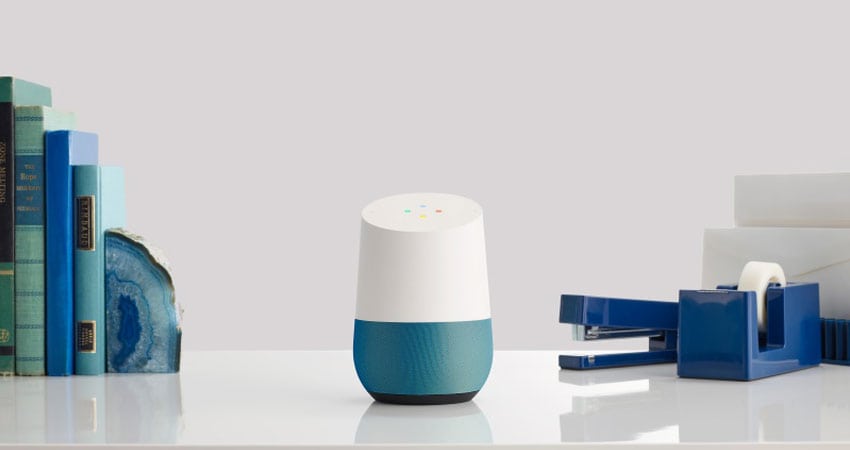Walmart is jumping with both feet into voice-directed ordering through a partnership with Google that will allow customers to place orders through Google’s voice technology and have them fulfilled and delivered as part of the Google Express marketplace and delivery network.
At the same time, Google Express has eliminated its membership fees ($10 per month, $95 annually). Delivery is usually free depending on the order threshold set by the retailer, typically $25 to $35.
Amazon’s Alexa has the largest penetration of smart voice-enable devices, owning 72.2% of the market compared to just 22% for Google Home according to eMarketer. But what should give Jeff Bezos pause is the fact that this capability for Walmart extends far beyond Google Home users to those with Google Assistant (voice-directed capability in all Android smartphones) and to the Google Express website itself.
Despite the frenzy and buzz, consumers have yet to jump in whole hog to voice-based ordering. But that will change quickly as they get over initial security and privacy concerns as they did with ecommerce in general a decade ago.
Nearly 50 companies are selling on the Google Express platform, including major retailers and brands like Kohl’s, Target, Guitar Center, Costco, Ulta Beauty, Wayfair and Sur La Table.
In a blog post, Walmart U.S. Ecommerce President Marc Lore said hundreds of thousands of Walmart items will be available via Google Express beginning in September. Expansion plans for 2018 include tying in Walmart’s 4,700 U.S. stores, enabling voice-directed grocery orders and giving customers the option of store pickup at a discount.
By linking their online Walmart account to Google Express, shoppers can let the system make buying recommendations based on store and online purchase history, including regular purchases of everyday items via Walmart’s Easy Reorder.
“When it comes to voice shopping, we want to make it as easy as possible for our customers,” Lore said in the blog post. “That’s why it makes sense for us to team up with Google. They’ve made significant investments in natural language processing and artificial intelligence to deliver a powerful voice shopping experience.”
Lore also anticipated the “me-too” mentions in his comments, as Amazon got there first. “We know this means being compared side-by-side with other retailers, and we think that’s the way it should be,” he said. “An open and transparent shopping universe is good for customers.”
There’s one place where Google – and by extension Walmart – have it all over Amazon as noted above: Device penetration.
“Android has an 80% market share worldwide on smartphones, so this partnership essentially puts an Alexa-like device in the hands of millions of consumers, giving them access to frictionless shopping,” noted Tushar Patel, CMO of ecommerce platform company Kibo. “Considering smartphones are by our side 24/7, this could really give Walmart a much-needed acceleration to boost their digital sales while providing more personalized shopping and immediate fulfillment for its customers.”
Plenty of other Amazon comparisons have been made this week on another front: Walmart’s application for a patent to create a dirigible-like floating warehouse. Amazon was awarded a patent in December for a very similar technology.

